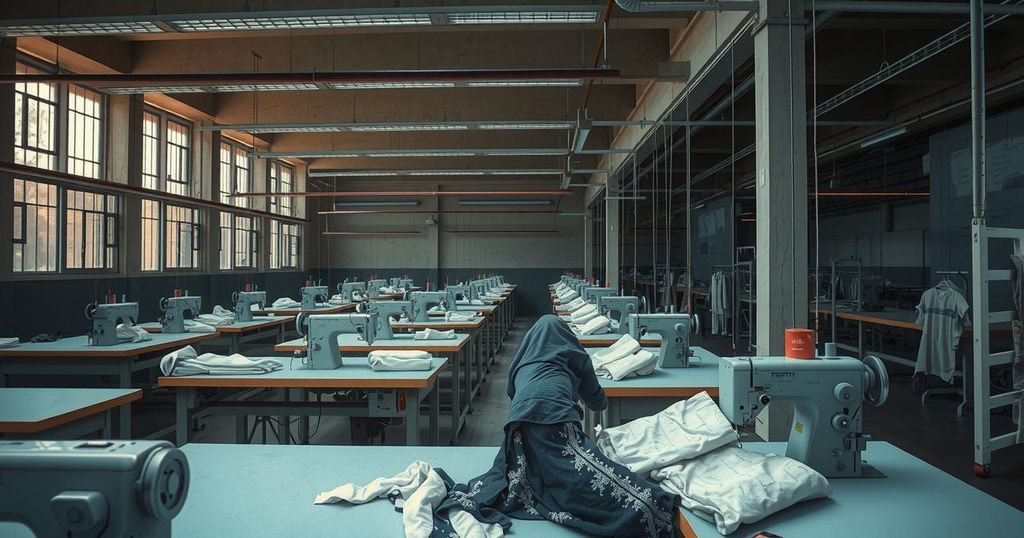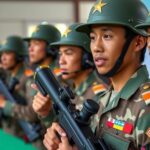Myanmar’s Garment Workers Struggle Amid Civil War Economic Decline
Garment workers in Myanmar face severe economic hardships due to the civil war and military coup. Many workers struggle to afford basic necessities, compromising their meals to support families. While some international brands continue operations, rampant rights abuses are reported, further complicating the situation amid fears of a new military conscription law.
The ongoing civil war in Myanmar is severely impacting the garment workers, including Wai Wai, who often begins her shifts on an empty stomach. These workers produce garments for global brands, bringing significant export revenue to the country. However, the economic devastation following the military coup and subsequent conflict has led to extreme financial hardships, compelling many, like Wai Wai, to skip meals to support their families.
In a nearby factory, Thin Thin Khine shares similar struggles alongside her sisters, working up to 12 hours for a meager salary that barely covers living expenses. The increased cost of living has forced families to forgo basic necessities and personal items that were once affordable.
Since the coup, major brands such as Inditex and Marks and Spencer have withdrawn from Myanmar, while others like Adidas and H&M continue to operate under challenging conditions. The contrasting figures on export earnings underscore the complexities of the industry amidst economic turmoil.
Despite remaining in Myanmar, factory owners face escalating operational costs due to dwindling power supplies and rising material prices, threatening to diminish profits and worker conditions. Reports reveal that abuses against workers have surged in the wake of military rule, prompting concerns from international unions over labor rights violations.
The recent implementation of a conscription law has added to the anxiety of workers. Many, including women, fear being drafted into military service, exacerbating the already dire situation for those unable to afford bribes to evade such obligations. The overall situation for garment workers exemplifies the dual crisis of economic instability and human rights abuses within Myanmar’s current climate.
Prior to the 2021 military coup in Myanmar, the garment industry accounted for a substantial portion of the country’s export earnings. The civil war that ensued has drastically worsened economic conditions, affecting a significant segment of the population, particularly garment workers. These individuals, who stitched garments for international brands, now face extreme poverty and instability, battling against the backdrop of rising prices and rampant rights violations. With many global companies reconsidering their operations in Myanmar, the sustainability of the industry and the livelihoods of workers are at risk. Human rights organizations have noted a sharp increase in abuses and have condemned the military government’s crackdown on labor movements and unions. The grim prospects of conscription have further complicated the lives of workers, especially those supporting families, amplifying their fears and economic vulnerabilities.
The plight of Myanmar’s garment workers, exemplified by the stories of individuals like Wai Wai and Thin Thin Khine, highlights the urgent need for attention to their dire economic and living conditions. A confluence of rising operational costs, human rights abuses, and fears of forced conscription paints a grim picture for many. The ongoing civil unrest and the withdrawal of major brands only deepen the uncertainty surrounding their futures, emphasizing the complexity of balancing economic needs with fundamental human rights protections.
Original Source: www.france24.com








Post Comment